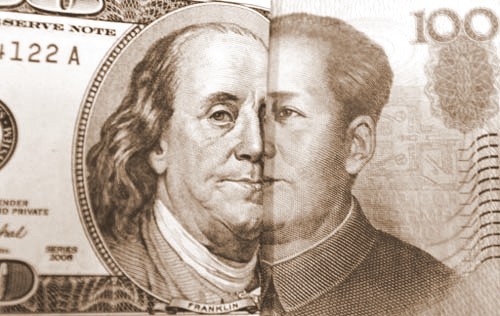Is China really buying up America? Or is it the opposite?
Chinese investments in the US draw lots of headlines and occasional handwringing about China’s growing influence and ownership. It is true that Chinese investors, especially SOE, have been throwing billions of dollars around, mostly for US real estate.

Far more quietly, and perhaps with better overall results, US investors have been buying businesses in China. The US acquirers do their utmost to stay out of the headlines. They prefer to shop quietly, without competitors finding out. This does a lot to keep prices down and give these US buyers maximum negotiating leverage. A lot of these US acquisitions in China stay secret long after they close.
Contrast this style with that of Chinese investors in the US. Most end up bidding against one another for the same assets. Overpaying has become a hallmark of Chinese purchases in the US.
Compared to the huge number of Chinese companies shopping for assets in the US, not nearly as many US companies are sizing up deals and kicking tires in China. Partly this stems from some misunderstandings among less-experienced US acquirers about what kinds of Chinese businesses can be targeted. Topping the list of sweeping generalizations: Chinese companies, especially privately-owned ones, are said to have owners who rarely wish to sell. Those that do, want to sell their deeply troubled companies at Neiman Marcus prices.
There is some truth to this arm-chair analysis. But, equally, there are good deals being done. I’ve written before about the most successful US acquisition in China, by food giant General Mills. (Click here to read.) It’s a textbook case of how to do M&A in China and also how to build a billion dollar business there without anyone really noticing.
Why buy rather than build in China? For one thing, China has huge and fast-growing markets in almost all industries except the smoke-stack ones. For buyers that choose and execute well, the China market is proving lucrative ground to do M&A. It’s a truth that remains a known to a select group of smart buyers.
Lifting the veil a bit, here are some of the largely-unpublicized acquisitions done by smart American buyers in China.

In April 2015, 3D Systems, a New York Stock Exchange-quoted manufacturer of 3D printers, purchased 65% of a Chinese 3D printing sales and service company Wuxi Easyway. The Chinese company’s customers in China include VW, Nissan, Philips, Omron, Black & Decker, Panasonic and Honeywell. 3D Systems has an option to purchase the remainder of the business within five years.
Along with acquiring a developed sales network and increased distribution in China, another key aspect of the deal was to make the founder of Easyway, a Western-educated Chinese, the CEO of a newly-formed subsidiary, 3D Systems China.The plan is to make the Chinese founder the king of a larger kingdom, a carrot frequently dangled by American companies to persuade Chinese founders to sell to them.
Since the deal closed, 3D Systems also accelerated the build-out of its operational infrastructure in China. What lies behind the deal? 3D Systems acquired a local management team as well sales channels, customer relationships.It did not acquire manufacturing capability.













Leave A Comment